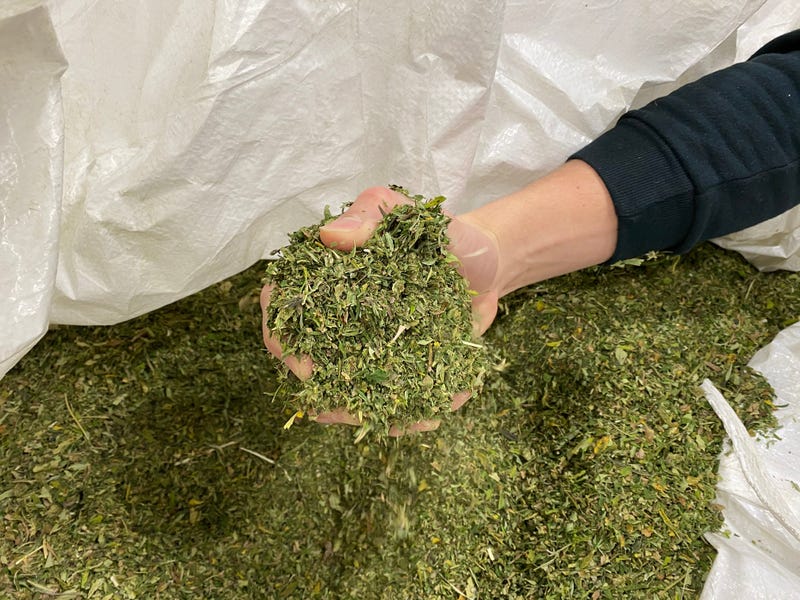
One year after the federal government legalized hemp in the Farm Bill, the industry in Minnesota — which had a five-year head start along with states like Colorado and Kentucky — is finding its footing in an uncertain landscape. 2020 will be an important year for hemp in Minnesota and those in it are steadfastly optimistic.
"I started seeing this CBD trend and my wife suffered from migraines," he said. "CBD ended up working for her and I'm like, 'Oh my gosh, this is not snake oil. This is something that could really work for people.'"
After the Farm Bill, hemp acreage in Minnesota increased 10-fold to 8,000 and the Minnesota Department of Agriculture licensed nearly 350 growers -- up from 43 the year prior. Now, for the first time, the USDA is involved, disrupting the rhythm Minnesota's been developing since the first seeds were planted in 2016.
"That's kind of where we're stuck at right now," Anthony Cortilet, supervisor of the noxious weed and hemp programs for the Minnesota Department of Agriculture, which has a staff of two despite the massive growth, said. "Trying to figure out a way forward so that he don't hurt our hemp industry here in Minnesota by taking on what we feel are a few more restrictive aspects to the federal rules that we would have to adopt if we were going to have our plan accepted."
Cortilet says that includes some regulations like reducing the amount of time between testing the crop and harvesting and having DEA agents oversee the destruction.
"That puts a huge strain on law enforcement and the DEA for negligible amounts of THC," he said.
A post shared by Minny Grown ™ (@minnygrown) on Sep 17, 2019 at 10:34am PDT
This year is about finding an agreement that will keep the industry strong in Minnesota while keeping regulations manageable both for growers and the state.
Between the fertile soil and ideal climate, plus its ability to attract people with nontraditional backgrounds to agriculture, Minny Grown founder and CEO Zach Rohr and Brown foresee a formidable future.
"I definitely expect our state to be a powerhouse in this industry not even within the next five years, but looking longer term — 10, 15, 20 years," Rohr said. "I just think it's inevitable that this will be a hotspot to grow hemp across the country."
